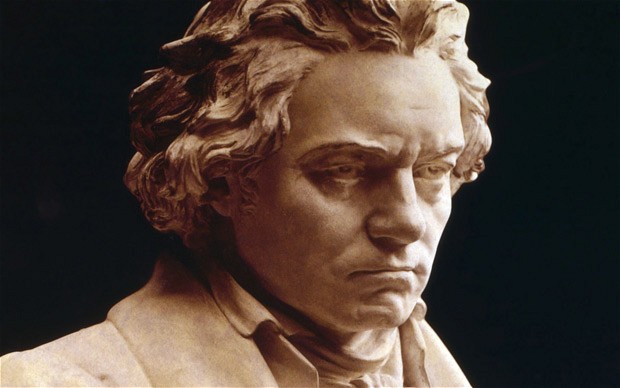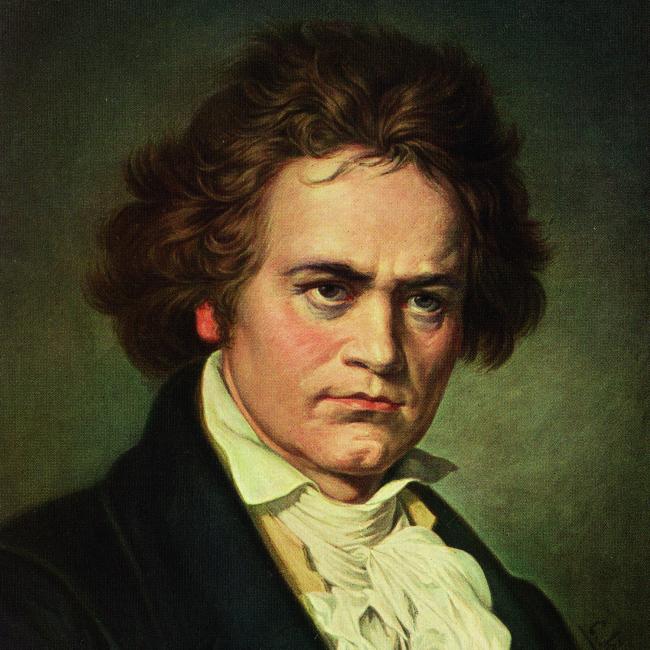A fascinating passage, reported by a young woman named Elizabeth Brentano,[1] who was a friend of Goethe and who met Beethoven in 1810. Here are Beethoven’s own words, according to Brentano:
“When I open my eyes I must sigh, for what I see is contrary to my religion, and I must despise the world which does not know that music is a higher revelation than all wisdom and philosophy, the wine which inspires one to new generative processes, and I am the Bacchus who presses out this glorious wine for mankind and makes them spiritually drunken. When they are again become sober they have drawn from the sea all that they brought with them, all that they can bring with them to dry land. I have not a single friend, I must live alone. But well I know that God is nearer to me than to other artists; I associate with Him without fear; I have always recognized and understood Him and have no fear for my music — it can meet no evil fate. Those who understand it must be freed by it from all the miseries which the others drag about with themselves.”
Further: “Music, verily, is the mediator between intellectual and sensuous life.
“Speak to Goethe about me. Tell him to hear my symphonies and he will say that I am right in saying that music is the one incorporeal entrance into the higher world of knowledge which comprehends mankind but which mankind cannot comprehend.”
That’s from J. W. N. Sullivan’s Beethoven: His Spiritual Development.[2] Sullivan reports that Brentano was intelligent and artistically sensitive but not known for her strict truthfulness, so how close the passage is to Beethoven’s actual views is unknown.
But it’s an important passage, Sullivan argues, because it “is almost the only evidence we have as to Beethoven’s conception of the function of music.”[3]
Sullivan’s own thesis about Beethoven is that “the development and transformation of Beethoven’s attitude towards life, the result of certain root experiences can, I believe, be traced in his music.” That is, Beethoven became a particular person as a result of his life experiences, experiences that “do not happen once for all” but “have a life of their own” and “continue to modify the man’s whole attitude towards life.” Becoming the particular person that Ludwig van Beethoven was as a man was then integral to Beethoven the composer: “in his greatest music Beethoven was primarily concerned to express his personal vision of life.”[4]

The Beethoven passage seems to suggest that Beethoven sees himself as a sort of prophet revealing higher truths — that is, Beethoven’s music is a statement of truths drawn from a religious dimension, perhaps from God himself. Sullivan’s passage, by contrast, seems to suggest that Beethoven communicates Beethoven’s own philosophy — that is, his music is an expression of Beethoven’s view of life as he experienced it.
It’s the difference between (a) Beethoven’s being a reporter who gives creative expression to truths revealed to him by another source, and (b) Beethoven’s being a creator who expresses his own beliefs about what’s true.
An issue of emphasis, perhaps, and the passage from Beethoven is open to interpretation; but it takes us into the deep questions about music.

Sources: [1] Some have speculated that Elizabeth was Beethoven’s Immortal Beloved, e.g., Maynard Solomon, Beethoven (Schirmer Books, 1977), Chapter 15. [2] J. W. N. Sullivan, Beethoven: His Spiritual Development (Alfred A. Knopf, 1927), pp. 3-4. A rough e-pub version is online here. [3] Sullivan, p. 5. [4] Sullivan, pp. vii-viii.
Related: “Beethoven’s romantic fatalism” and my other music-related posts.

Excellent distinction, between the reporter and the creator. I tend to believe he understood himself as a creator, of expressing his own philosophy. I know little of Beethoven’s life but what I do indicates he was not mainly a mystic — so even if he had said what Brentano reported, it was likely somewhat allegorical.
The question of reporter versus creator is perhaps answered by Brahms, who asserted that a composer was more of an editor, that he selected music he heard and then set it down intelligently. Somewhat like the view of art as a recreation of reality. Only this reality is higher and more exclusive. “Music” (the Muses?) can not really be obscene or gross, as its language does not connote physical entities. The Pastoral Symphony of Beethoven is described by its composer as a “picture of the EMOTIONS stirred by nature,” although the symphony has a definite program, a very simple one.
We are returned to the point of whether Beethoven’s metaphysics can be deduced from his music — I think not, for the reason above and because Beethoven composed music in this manner (his words): “When I like the music, and think the public will listen to it, and if God approves of it, then I set it down.” Beethoven passionately believed in a Heavenly Father (see Ode to Joy) and would not set frivolous texts, of which he accused Mozart in Don Giovanni.
The topic drags us to the question of whether a Divine and Loving Creator made the universe or, as that person could not exist to the atheist, then we are tasting the enormous complexity of the Big Bang, sprung from a “singularity” (Hawking’s latest argument). Animals don’t listen to music, they don’t have “minds” as we do, reason and free will. Whereas language is a combination of audio-visual symbols, music is another language with beautiful hieroglyphs of “notes” and audio variety of harp and horn and drum — but the greatest instrument is the human voice, which can also articulate words.
It is amateurish to assert (musicologically) that metaphysics either influence music, and more so, that, for example, “Beethoven was sad, therefore he wrote a sad sonata in a minor key…” Plato and Pythagoras recognized the physical part of the apparatus — that strings, at half their length, produce sounds one octave higher — but their views are hardly metaphysical. If one listens to music so that one can expound a philosophic theory, one misses the point : music is not a “secret code”. Moreover, many people are not musical — they can’t hear it.
They like “jazz”!